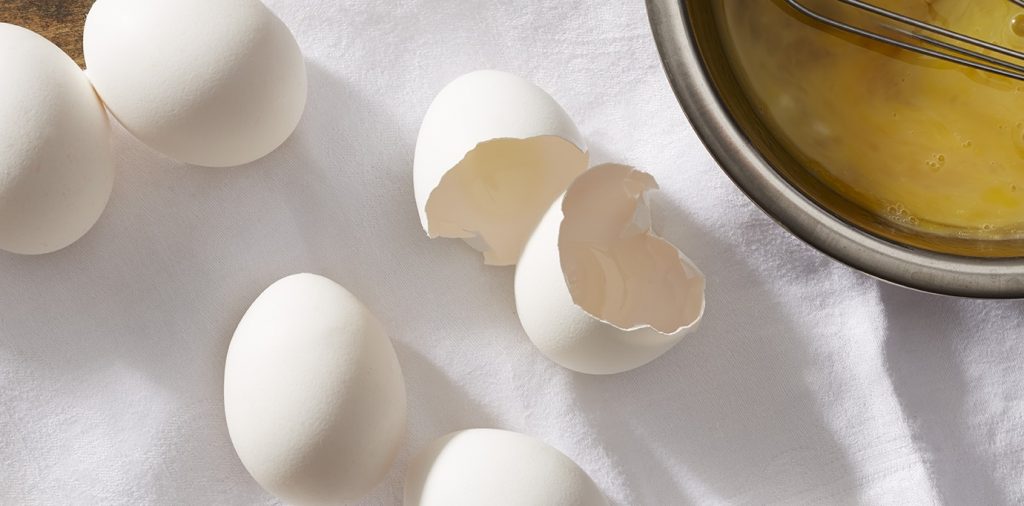
Following release of the of the 2015-2020 Dietary Guidelines for Americans that placed no daily limit on dietary cholesterol, a new study published in the Journal of the American College of Nutrition associates eggs with a 12 percent reduction in the risk of stroke, the 5th leading cause of death in the United States.
Tia M. Rains, PhD, Executive Director of the Egg Nutrition Center, sat down to discuss the study and why its important to consumers.
ENC: Given all the conflicting information consumers have heard about eggs over the years, were you surprised by the studys findings?
Dr. Rains: Like most nutrition scientists, I was pleased and impressed with the findings, but not really surprised. The relationship between dietary cholesterol intake and heart disease risk has been hotly debated for more than 50 years, but the preponderance of respected studies and position statements from the American College of Cardiology, American Heart Association, and the European Guidelines on Cardiovascular Disease Prevention in Clinical Practice, all indicate that there is no appreciable relationship between consumption of dietary cholesterol and serum cholesterol.
ENC: How was the study on egg consumption and possible stroke reduction conducted?
Dr. Rains: The study was a comprehensive review and meta-analysis of all research conducted through August, 2015, on egg intake and risk of heart disease and stroke.1 While meta-analyses on the relationship between cholesterol intake and heart disease risk have been published previously, the present study included newer cohort trials that had not been included in prior analyses and were specific to egg consumption. The study itself was conducted by Dr. Dominik Alexander, Principal Epidemiologist at the EpidStat Institute in Ann Arbor, Michigan.
ENC: Why is this news so important?
Dr. Rains: The new study seems to corroborate the basic recommendations of respected health and nutrition organizations, but it actually goes a step further in suggesting a potential beneficial relationship between egg intake and stroke risk. Thats very important nutrition information for consumers, especially those at risk for stroke. Eggs do not need to be completely avoided.
ENC: Does this mean eating more eggs will reduce the chances of stroke?
Dr. Rains: No. The study doesnt go that far. But it does suggest that moderate consumption of eggs about one each day seems to be associated with a 12% reduction in the chance of having a stroke.1 Other dietary and lifestyle factors have also been shown to reduce stroke risk including regular physical activity and an overall diet rich in vegetables, fruits, whole grains, nuts, seeds, fish, and lean sources of protein.
Its also important to note that one large egg contains six grams of protein and varying levels of other nutrients including vitamins E, D and A, as well as antioxidants lutein and zeaxanthin, which are found within the egg yolk.2 Given that eggs remain one of the most affordable and convenient foods available, the study provides added reassurance to consumers that they can eat them in moderation without worry, as part of the healthy eating patterns recommended in the Dietary Guidelines for Americans.
ENC: Did the way eggs were prepared have any effect on research participants?
Dr. Rains: The research didnt differentiate among the many ways eggs consumed by research participants might be prepared, whether hard-boiled, scrambled, fried or baked. However, one of my favorite ways to eat eggs is on top of greens such as spinach and kale saut?ed in olive oil, which fits perfectly with dietary recommendations for reducing disease risk.3 In fact, eggs are a great pairing with all vegetables, whole grains, and even other sources of lean protein such as fish. Dont be afraid to #putaneggonit!
Citations
1. Alexander DD, Miller PE, Vargas AJ, Weed DL, Cohen SS. Meta-analysis of Egg Consumption and Risk of Coronary Heart Disease and Stroke. J Am Coll Nutr. 2016 Oct 6:1-13.
2. https://www.enc-online.org/egg-101/
3. For more information on reducing your risk of stroke and heart disease, please visit the American Heart Association.
